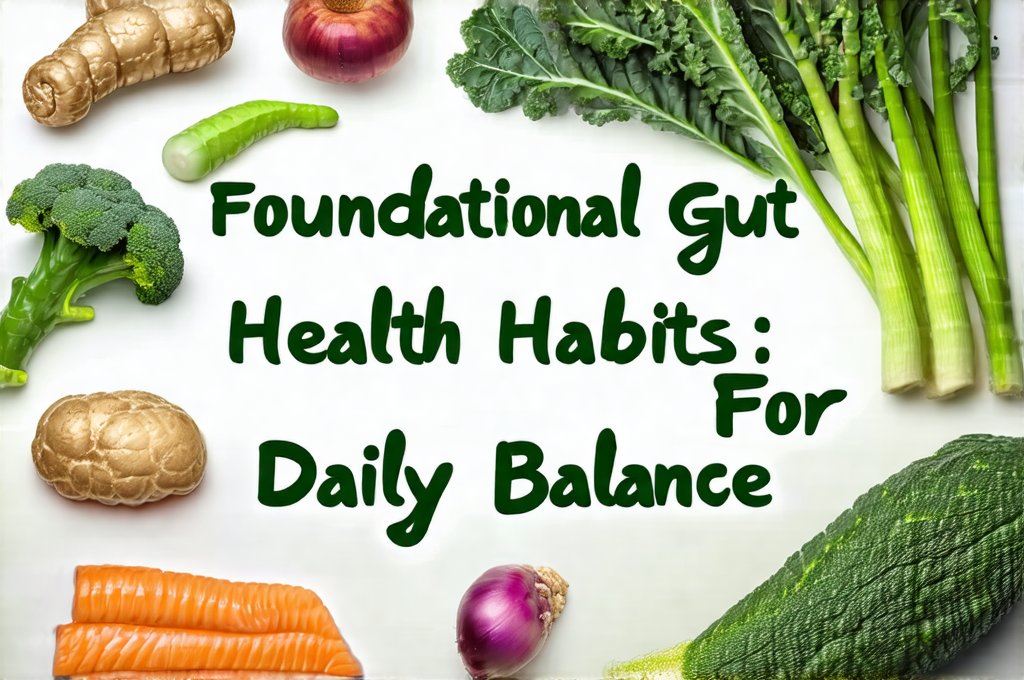The gut microbiome – often called our “second brain” – is a complex ecosystem residing within our digestive tract, populated by trillions of microorganisms including bacteria, fungi, viruses, and other microbes. It’s far more than just a digestive aid; it profoundly influences our overall health, impacting everything from immunity and mental wellbeing to nutrient absorption and chronic disease risk. For many years, gut health was an overlooked aspect of wellness, but growing research consistently demonstrates its pivotal role in maintaining balance within the body. Understanding how to nurture this internal ecosystem isn’t about restrictive diets or complicated regimens; it’s about cultivating simple, sustainable habits that support a thriving microbial community and ultimately, a healthier you.
The concept of ‘gut health’ extends beyond simply avoiding digestive discomfort. It encompasses a harmonious relationship between our bodies and the microorganisms within us. A balanced gut microbiome is characterized by diversity – a wide range of different species working together. This diversity provides resilience against pathogens, enhances nutrient extraction, and contributes to efficient immune function. Disruptions to this balance, known as dysbiosis, can arise from factors like poor diet, stress, antibiotic use, and environmental toxins. Recognizing the interconnectedness between our gut health and overall wellbeing is the first step toward making positive changes that will resonate throughout your life. If you are looking for ways to improve your gut health, consider exploring how weekend habits and their potential impact.
Dietary Foundations for a Healthy Gut
Food is undeniably the most significant factor influencing the composition of our gut microbiome. What we eat directly feeds the microbes within us, shaping their populations and activity. A diet rich in whole foods – unprocessed fruits, vegetables, whole grains, and lean proteins – provides the essential fuel for beneficial bacteria to flourish. Conversely, a diet heavy in processed foods, refined sugars, and unhealthy fats can promote the growth of less desirable species, contributing to imbalances. Prioritizing fiber is paramount; it acts as a prebiotic, meaning it nourishes the good bacteria in our gut. Think of fiber as their favorite food!
Beyond simply increasing fiber intake, diversifying your dietary sources of fiber is crucial. Different types of fiber support different microbial communities, leading to greater overall diversity within the gut. Incorporate a wide range of plant-based foods into your diet – apples, bananas, berries, broccoli, oats, lentils, and beans are all excellent choices. Fermented foods, such as yogurt (with live cultures), kefir, sauerkraut, kimchi, and kombucha, introduce beneficial bacteria directly into the gut, acting as probiotics. However, it’s important to note that probiotic supplements aren’t always necessary; a well-rounded diet can often provide sufficient microbial support. Are you considering morning smoothies as part of your dietary plan?
Finally, hydration plays a vital role in maintaining gut health. Water helps move food through the digestive system, preventing constipation and ensuring efficient waste removal. It also supports the growth of beneficial bacteria and contributes to the overall function of the gut lining. Aim for at least eight glasses of water per day, adjusting based on your activity level and climate. Prioritizing real food, diverse fiber sources, fermented foods, and adequate hydration is a powerful foundation for building and maintaining a healthy gut. You might also wonder can you eat for your gut health without strict rules?
Stress Management & Gut Health Connection
The connection between our brains and guts – often referred to as the gut-brain axis – is bidirectional: what happens in one impacts the other. Chronic stress significantly disrupts gut health by altering the microbiome, increasing intestinal permeability (often called “leaky gut”), and suppressing immune function. When we’re stressed, our bodies release cortisol, a hormone that can negatively affect the delicate balance of microbes in the gut. This disruption can lead to symptoms like bloating, constipation, diarrhea, and even anxiety or depression.
Developing effective stress management techniques is therefore crucial for supporting gut health. These practices don’t have to be complicated; even small changes can make a significant difference. Here are some strategies to consider:
1. Mindfulness Meditation: Regular meditation helps calm the nervous system and reduce cortisol levels.
2. Deep Breathing Exercises: Simple breathing techniques can quickly alleviate stress and promote relaxation.
3. Regular Exercise: Physical activity releases endorphins, which have mood-boosting effects and help manage stress.
4. Spending Time in Nature: Exposure to nature has been shown to lower cortisol levels and improve overall wellbeing.
5. Social Connection: Connecting with loved ones provides emotional support and reduces feelings of isolation.
Cultivating a mindful approach to life, prioritizing self-care, and incorporating stress-reducing activities into your daily routine are essential for protecting both your gut health and mental wellbeing. Stress isn’t just a mental issue; it’s a physiological one that profoundly impacts our digestive system. Considering traditional remedies may help manage stress as well.
Sleep & Its Impact on Gut Microbiome
Sleep is often underestimated as a cornerstone of good health, but its impact on the gut microbiome is substantial. During sleep, the body undergoes essential repair and restoration processes, including those within the digestive system. Lack of sleep disrupts these processes, leading to imbalances in the gut microbiome, increased inflammation, and impaired immune function. Studies have shown that individuals who consistently get insufficient sleep tend to have less diverse microbial communities compared to those who prioritize restful nights.
The quality of our sleep is just as important as quantity. Disruptions to sleep patterns – such as irregular bedtimes or frequent awakenings – can also negatively impact the gut microbiome. To optimize sleep for gut health:
1. Establish a Regular Sleep Schedule: Go to bed and wake up around the same time each day, even on weekends.
2. Create a Relaxing Bedtime Routine: Wind down with calming activities like reading, taking a warm bath, or listening to soothing music.
3. Optimize Your Sleep Environment: Ensure your bedroom is dark, quiet, and cool.
4. Limit Screen Time Before Bed: The blue light emitted from electronic devices can interfere with melatonin production, making it harder to fall asleep.
Prioritizing seven to nine hours of quality sleep per night isn’t just about feeling rested; it’s about supporting a healthy gut microbiome and overall wellbeing. A well-rested body is better equipped to maintain balance within the digestive system and protect against imbalances that can lead to health problems. If you are considering dietary changes, how to simplify meals can be a great starting point.
Movement & Gut Motility
Physical activity, often celebrated for its cardiovascular benefits, also plays a surprising role in supporting gut health. Exercise promotes gut motility – the movement of food through the digestive tract – which prevents constipation and supports regular bowel movements. Regular physical activity also increases microbial diversity and reduces inflammation within the gut. The type of exercise isn’t as important as consistency; find activities you enjoy and incorporate them into your routine.
Even gentle forms of movement, such as walking, yoga, or swimming, can have a positive impact on gut health. These activities stimulate peristalsis – the wave-like contractions that move food through the digestive system – and help maintain healthy bowel function. Conversely, a sedentary lifestyle can contribute to constipation, bloating, and an increased risk of dysbiosis. Movement isn’t just about fitness; it’s about supporting the natural rhythms of your digestive system. Are artificial colors affecting your gut health as well?
Incorporating regular physical activity into your daily routine is a simple yet powerful way to nurture your gut microbiome and promote overall health. Remember to listen to your body and avoid overexertion, especially if you have existing digestive issues. A balanced approach that combines mindful movement with a healthy diet and stress management techniques will create a foundation for lasting wellbeing.


















